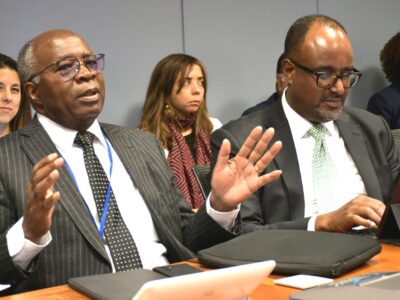Zambia’s labour force has increased in the last five years, rising from 3.4 million in 2017 to 3.6 million in 2021, a new labour force market research paper has revealed.
The research paper was conducted by the Jesuit Centre for Theological Reflection and Zambia Chartered Accounts Studies (ZCAS) University.
According to the research paper disseminated on Thursday in Lusaka, the labour force is still dominated by males who contribute about 60 percent.
Under the paper, participation rate declined slightly from 37.5percent in 2017 to 36percent in 2015 and was almost two times higher for males than females whose rate in 2021 was estimated at 28.3percent.
JCTR Researcher, Abson Chompolola, presented the research paper titled “Youth unemployment in Zambia, the case of Lusaka province”.
Chompolola recommended that government needs to identify factors that constrain female’s participation in the labour market in order that strategies can be designed to improve female participation.
“Youths should be encouraged to utilize training opportunities like skills training under the Constituency Development Fund (CDF) to acquire skills and enhance employability,” he said.
ZCAS acting Vice Chancellor, Kelvin Kayombo, said the research revealed that youth unemployment rate in Lusaka is at 22 percent relative to the overall national trend which is at 12.5 percent and this can be attributed to lack of skills and education, among other factors.
Read More:Women’s group, WEAC, World-Wide Fund collaborate to fight unemployment in Zambia
Kayombo said the trend is particularly concerning as it affects not only the individuals who are unable to find work but also the families that have to support them and hence the overall economic development of the country.
“Our study identified several factors that contribute to youth unemployment in Zambia. These include a lack of skills and education, limited access to job opportunities and inadequate government policies,” he said.
Kayombo said the research highlighted the need for collaboration between various stakeholders, including the government, private sector and educational institutions.
WARNING! All rights reserved. This material, and other digital content on this website, may not be reproduced, published, broadcast, rewritten or redistributed in whole or in part without prior express permission from ZAMBIA MONITOR.












Comments